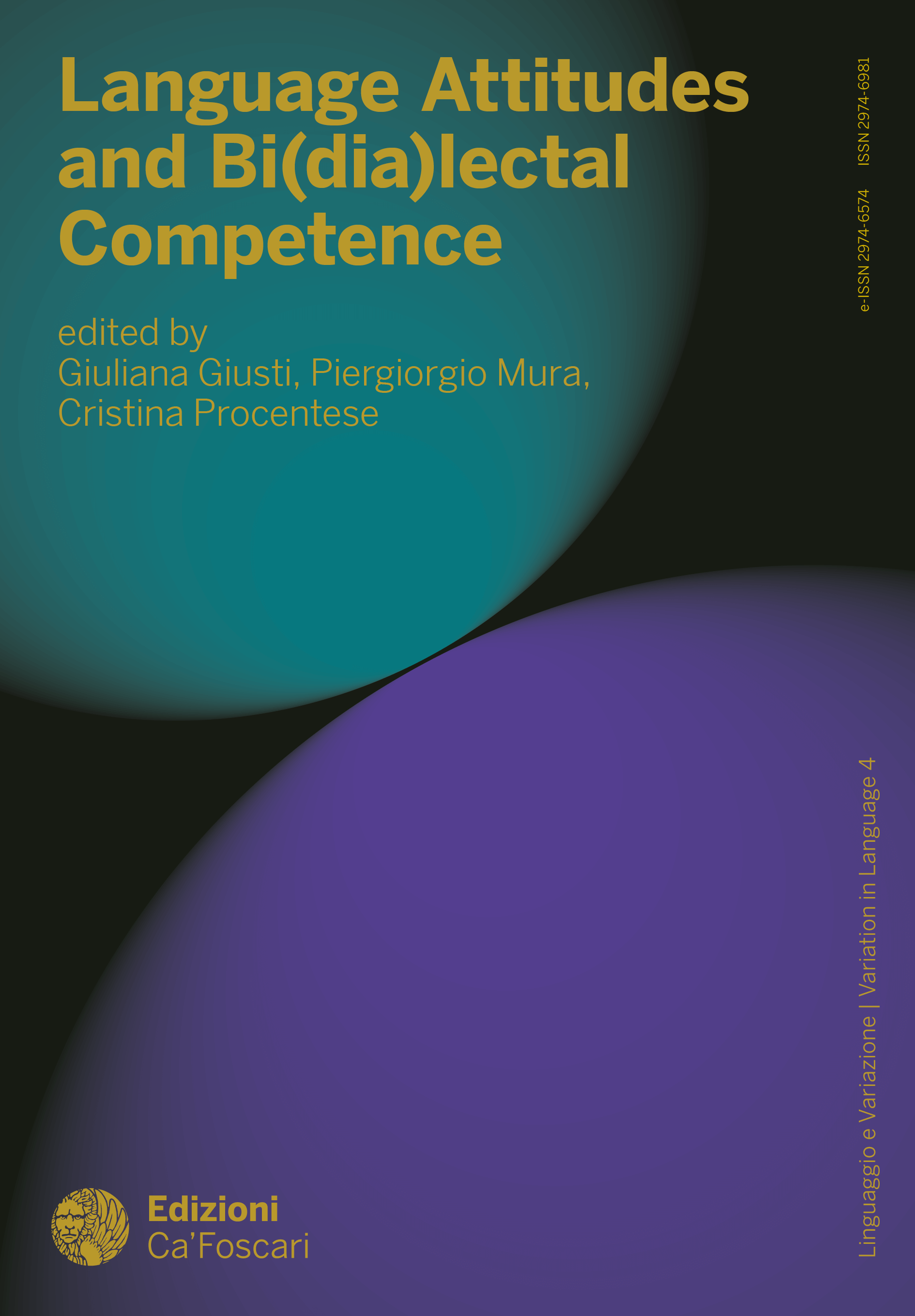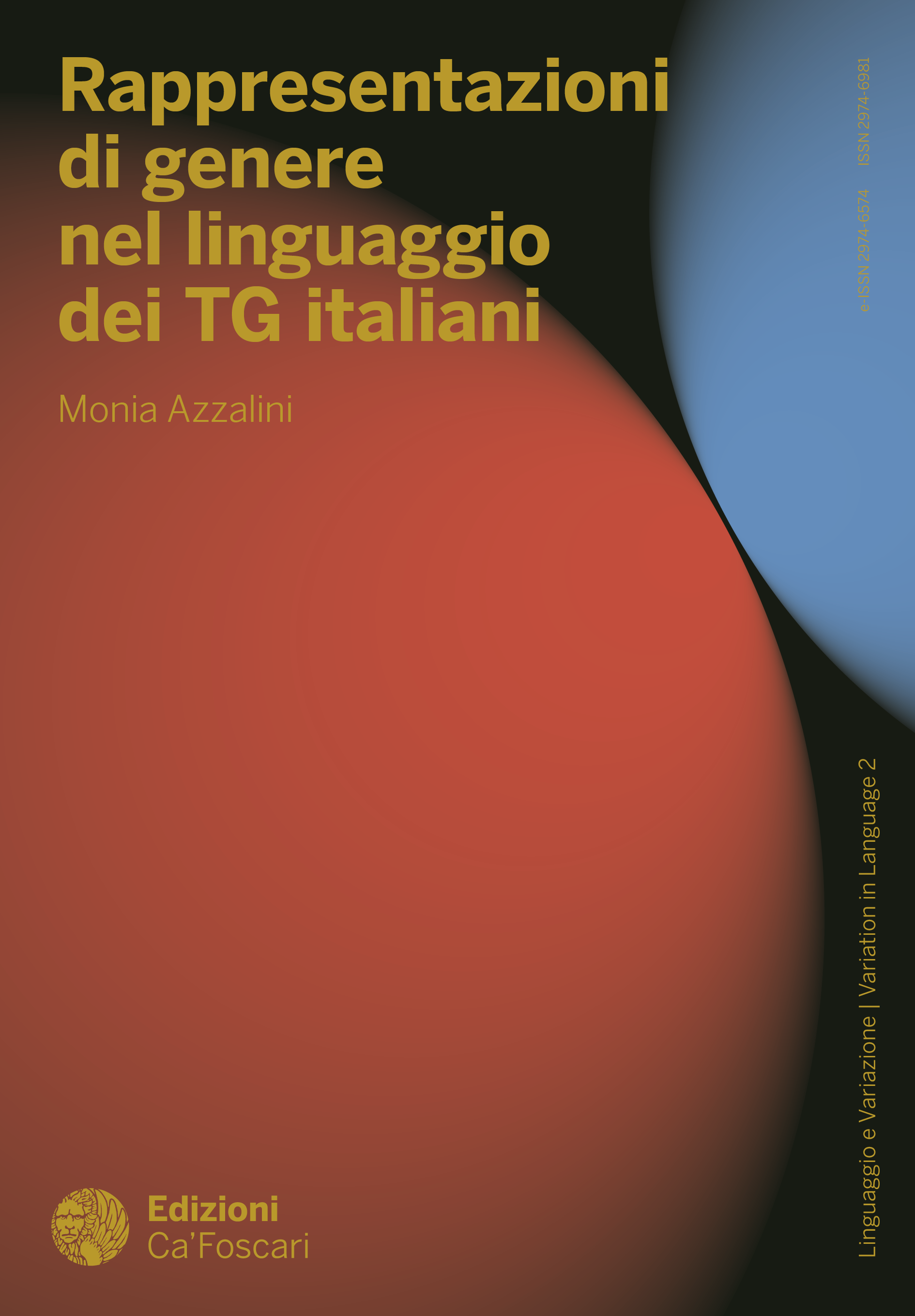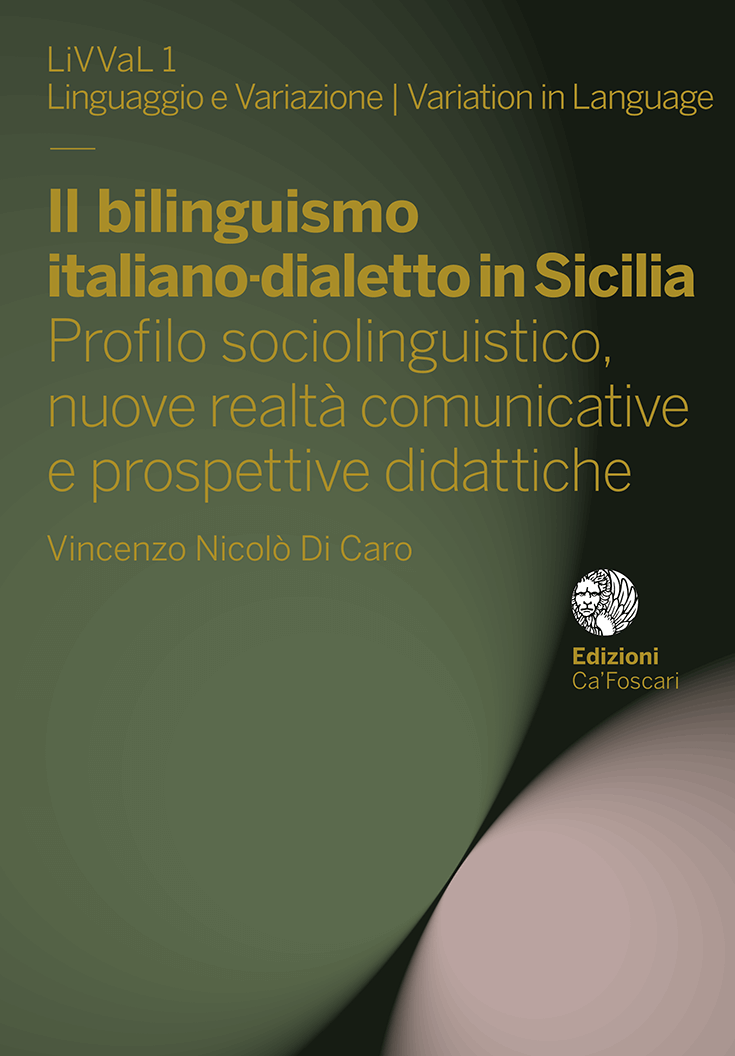LiVVaL Linguaggio e Variazione | Variation in Language
open access | peer reviewed
Aims & Scope
The series aims to present studies on linguistic variation in a broad sense, from the micro-variation that is found among varieties and related dialects to the macro-variation that is the object of study of language universals. The series hosts contributions based on any theoretical or applied approach, suitable for defining research questions and giving qualitative or quantitative analyses to issues regarding the interactions among language modules (lexicon, syntax, semantics, pragmatics, phonology and morphology) and the linguistic attitudes of speakers and communities. Contributions may deal with typical aspects of multilingual situations (languages of immigration and heritage languages) or bilectalism (bilingualism with local, regional, national languages), provide analyses of single phenomena in the micro- or macro-comparative perspectives, study the complex variation of language and identity, diatopic variation and diachronic change in the languages of Europe. The series aims to be a reference point for the study of Italian and Italoromance varieties in the pan-Romance and pan-European perspectives. Monographs and collective volumes are accepted in English or Italian. Other languages will be considered if relevant to the subject of the contribution.
e-ISSN 2974-6574 | ISSN 2974-6981 | Language en, it |
Copyright This is an open-access work distributed under the terms of the Creative Commons Attribution License (CC BY). The use, distribution or reproduction is permitted, provided that the original author(s) and the copyright owner(s) are credited and that the original publication is cited, in accordance with accepted academic practice. The license allows for commercial use. No use, distribution or reproduction is permitted which does not comply with these terms.
Latest published volume

- Lingua inclusiva: forme, funzioni, atteggiamenti e percezioni
- Dec. 13, 2024
This volume includes seven contributions devoted to inclusive language, understood in two interrelated meanings: the inclusion of women in discourses dominated by masculine forms and the inclusion of people who do not identify with binary gender identities. The goal is to stimulate respectful and informed discussion about linguistic structures, with a focus on Italian. The research presented, based on qualitative and quantitative corpus analyses, psycholinguistics experimental studies and questionnaire-based sociolinguistic investigations, describes specific language varieties or text types, highlights the main structural differences between Italian and German, investigates the supposed neutrality of the so-called ‘unmarked’ (or even ‘inclusive’) masculine or the public perception of inclusive language, and reflects on the use of grammatical desinences in the construction of gender identity in chatbots. A concerning scenario emerges from all the contributions, particularly for the degree of visibility of women in Italian cultural discourse and for the lack of denotation of prestige associated to the female gender.
- 95 download 706 search
- Heritage Languages and Variation
- July 18, 2024
- 57 download 568 search
- Language Attitudes and Bi(dia)lectal Competence
- June 30, 2024
- 57 download 615 search
- Partitive Constructions and Partitive Elements Within and Across Language Borders in Europe
- May 16, 2024
- 400 download 1735 search
- Rappresentazioni di genere nel linguaggio dei TG italiani
- Oct. 16, 2023
- 1252 download 2523 search
- Il bilinguismo italiano-dialetto in Sicilia
- Dec. 16, 2022




